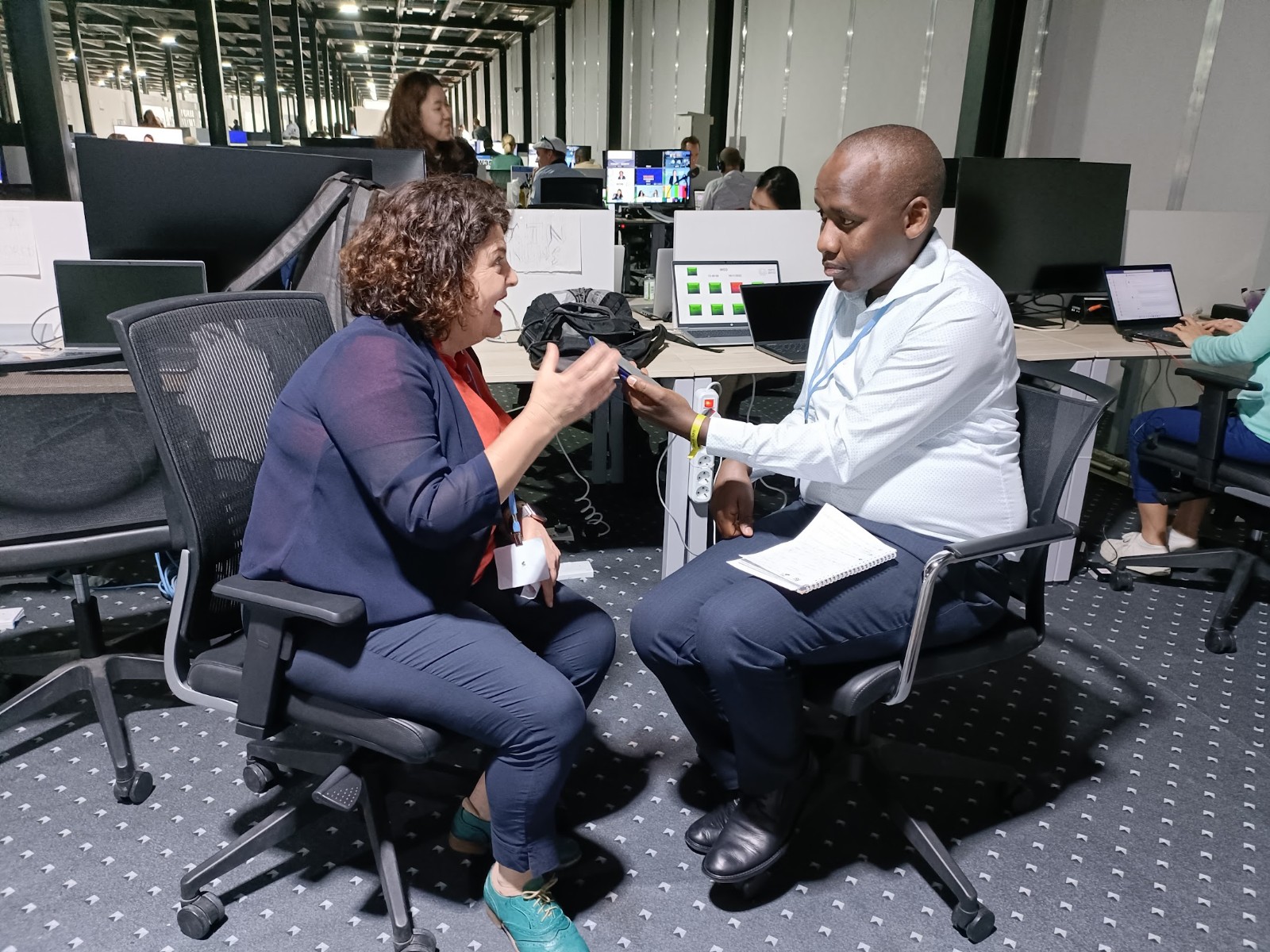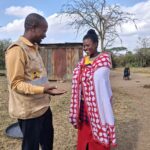
Rwanda one of the journalists supported by MESHA to attend COP-27.
By Agatha Ngotho | angotho@gmail.com
African group of negotiators have expressed disappointment that the Ksh12 trillion (US$100 billion) pledge by developed to developing countries remains unfulfilled.
Alioune Ndoye, President of the African Ministerial Conference on the Environment (AMCEN), underscored the importance of delivering the $100 billion as soon as possible.
This will help build trust and faith in the multilateral process of addressing climate change.
“We urge developed countries to deliver on their commitment to meet the goal and ensure the progression of efforts in the on-going mobilisation of climate finance,” said Ndoye while speaking to the media on the status of the negotiations at COP27 in Sharm el Sheikh, Egypt.
“We urge developed countries to take the lead in implementing their targets while providing enhanced support to developing countries.”
Collins Nzovu, Minister of Green Economy and Environment from Zambia, which chaired the African Group of Negotiators, said COP27 had been dubbed an implementation COP.
“Africa is worst affected by the climate crisis and yet contributes least to the pollution that causes climate change,” said Nzovu, adding that Africa is plagued by complex overlapping challenges, and many generations of Africans have been left behind and suffer consequences of actions not of their own making.
The systemic problems facing Africa require dedicated and targeted interventions. This will also unleash our continent’s potential to contribute to achieving the 1.5 degrees Celcius global warming.
According to the Intergovernmental Panel on Climate Change (IPCC) Sixth Assessment Report, Africa will be impacted more than any other continent while it only contributes less than four per cent of the world’s total carbon emissions.
The report indicated that Africa has the lowest historical and current emissions. It estimates that adaptation costs in developing countries will reach $127 billion (Ksh15.5 trillion), and Africa needs up to $86.5 billion (Ksh10.5 trillion) annually by 2030.
The IPCC report further showed that Africa has suffered a 34 per cent decline in food production and loss and damage to agricultural productivity.
The leaders called on all parties to work constructively towards reaching an agreement on a framework to enable achieving and assessing progress towards the Global Goal on Adaptation.
The Loss and Damages Fund
On November 20, countries made the landmark decision to provide loss and damage funding for countries most impacted by climate change effects. The breakthrough decision on compensation for loss and damage, can be considered as arguably the biggest win from COP27. This included the creation of a dedicated fund to support the nations that are most vulnerable and most impacted by the adverse effects of the climate crisis. They will be supported for losses arising from droughts, floods, rising seas, and other disasters attributed to climate change. There was also a call for new funding arrangements. To flesh this out, a transition committee, made up of representatives of 24 countries, was created to make recommendations on how to operationalize both the new funding arrangements and the new fund, to be discussed at the next COP.
The plethora of funds, at face value, always looks like a very positive step. This is undoubtedly the case, however missed funding targets by developed countries and difficulty in accessing the funds by African countries have remained as key constraints. According to the OECD, between 2016-2019 developed countries have fallen short of the USD 100 billion annual target for climate action in developing countries, yet this target is well below the estimated financing need. Africa has received only about USD 20 billion of this between 2016-2019. The Africa Group of Negotiators on Climate Change, have actually assessed the scale of need as rising to USD 1.3 trillion annually by 2030.









